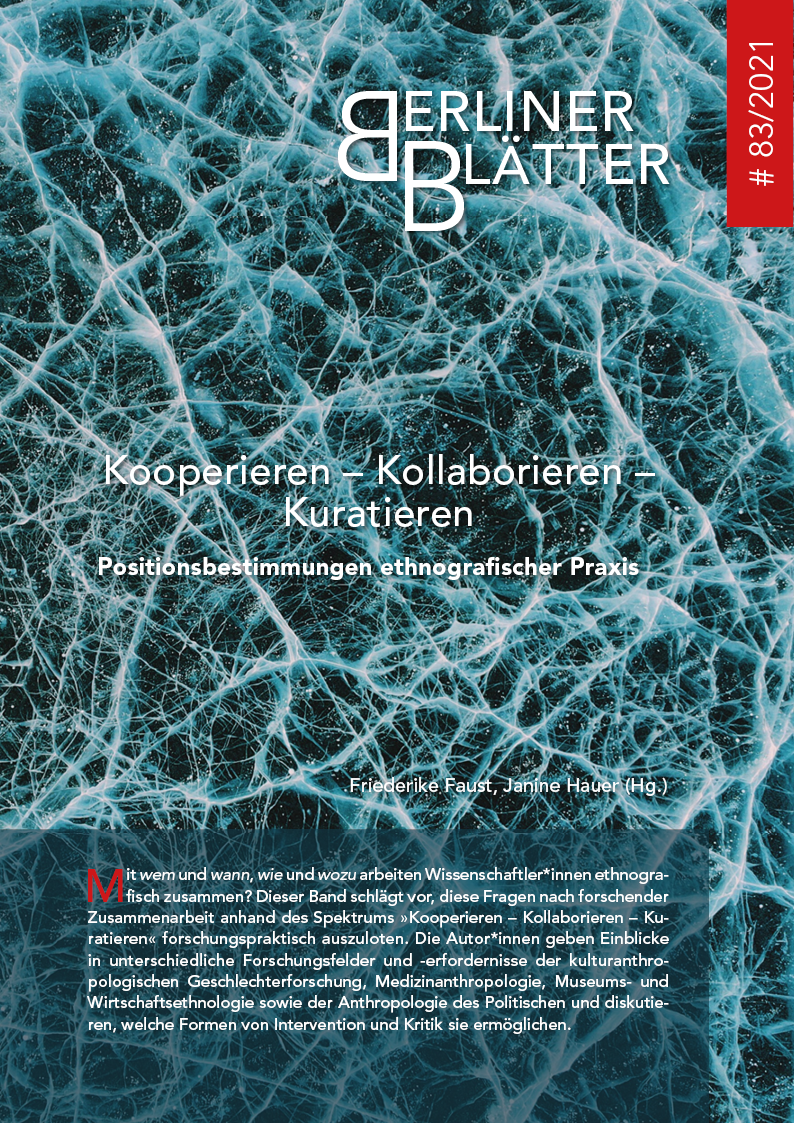Formats of co-laborating
Shared epistemic work as catalytic practice
Keywords:
Collaboration, reflexivity, intervention, ethnography, knowledge production, distributed agencyAbstract
Collaboration with actors in the research field has been a central theme of ethnographic knowledge production since at least the 1980s. However, the implementation of collaboration can frequently be characterized by a dichotomy: Variants of deconstruction and "critique from the outside" contrast with engaged or activist research that operates "from the inside" and is occupied with solving predefined problems in accordance with the epistemic positions of the research field. In our view, both positions do not adequately offer an impactful social scientific critique.
Based on ten years of collaboration with partners in the field of psychiatric care and research, we present in detail the implementation of three different formats of co-laborative - temporary and non-teleological - work. We discuss how practical forms of co-laborating with the research field position research subjects as epistemic partners during the process of knowledge production with the aim of impacting ethnographic knowledge making. We argue that situated concept work together with other actors establishes the possibility to feed back into the own discipline beyond distanced critique or adoption of perspective while simultaneously allowing for productive intervention into and with the field.








